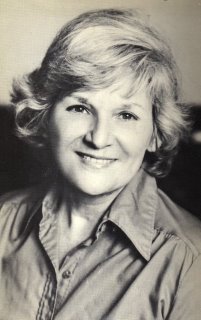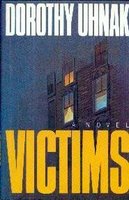 one of which inspired a short-lived TV series, has died, reportedly of a self-inflicted drug overdose. She was 76 years old.
one of which inspired a short-lived TV series, has died, reportedly of a self-inflicted drug overdose. She was 76 years old.Born Dorothy Goldstein in the Bronx, New York, on April 24, 1930, it’s said that as a young “tomboy” she hung around and took typing assignments at the NYPD’s 46th Precinct, which was located near her home. Then, after attending City College, she signed on with the transit police in 1953. “She won two awards for bravery, but sometimes had an unusual perspective on people she arrested,” The New York Times reports. “She gave $125 she had won on a television quiz show to the pregnant wife of [a] large armed man who had attacked her.” However, after 14 years with the transit force, a dozen of them as a detective, Uhnak resigned to complete her college education (though she also suggested that sexual discrimination might have been behind her departure). Her first book, the semi-autobiographical Policewoman: A Young Woman’s Initiation Into the Realities of Justice, was published in 1964. (It later gave rise to the 1974-1978 Angie Dickinson TV series Police Woman, which Uhnak told Mystery*File interviewer Ed Lynskey “wasn’t about my book at all. It was pure Hollywood.”) Her debut novel, The Bait (1968), won the Edgar Award for Best First Mystery Novel and introduced police detective Christie Opara, who would go on to appear in two subsequent Uhnak stories, The Witness (1969) and The Ledger (1970). That third Opara novel became a catalyst for the 1974-1975 blaxploitation TV series Get Christie Love!, which starred Laugh-In’s Teresa Graves as a beautiful, kick-ass undercover cop with a memorable signature line (“You’re under arrest, Sugah”), but earned little, save derision, from the author. “It was self-torture to watch them do such silly things,” Uhnak recalled. “No police officer did what they portrayed.”
Much to the regret of Opara fans, Uhnak soon abandoned her series character at the prodding of her Simon & Schuster editor, Michael Korda, who wanted her to write “a big police book, like The Godfather ...,” the author told Lynskey. “I was already feeling constrained by the Christie Opara series by wanting to write darker, more sweeping,

 and realistic books because the police department makes you see the real world. I saw a lot of dark things while as a police officer and that’s why I agreed to write Law and Order,” a multi-generational story about a family of cops, which was published in 1973 and made into a TV movie in 1976. She went on to compose The Investigation (1977), which earned a spot on H.R.F. Keating’s 100 Best Crime and Mystery Books list and was the basis for yet another Hollywood project, this time the 1987 TV flick that brought Telly Savalas back to his best-known role, as Lieutenant Theo Kojak, in Kojak: The Price of Justice. In the years since, she produced four more novels: False Witness (1981), Victims (1985), The Ryer Avenue Story (1993, which paid homage to the Bronx of her youth), and Codes of Betrayal (1997).
and realistic books because the police department makes you see the real world. I saw a lot of dark things while as a police officer and that’s why I agreed to write Law and Order,” a multi-generational story about a family of cops, which was published in 1973 and made into a TV movie in 1976. She went on to compose The Investigation (1977), which earned a spot on H.R.F. Keating’s 100 Best Crime and Mystery Books list and was the basis for yet another Hollywood project, this time the 1987 TV flick that brought Telly Savalas back to his best-known role, as Lieutenant Theo Kojak, in Kojak: The Price of Justice. In the years since, she produced four more novels: False Witness (1981), Victims (1985), The Ryer Avenue Story (1993, which paid homage to the Bronx of her youth), and Codes of Betrayal (1997).In Mystery*File, Lynskey spelled out Uhnak’s “contribution in helping to establish police-turned-authors as viable market forces.” He wrote:
She preceded Joseph Wambaugh (to whom she is most often compared), William Caunitz, Gerald Petievitch, and other male police professionals/scribes. Female authors coming later who wrote about a tough crime-fighting protagonists include Marcia Muller, Sue Grafton, Sara Paretsky, Nevada Barr, Katy Munger, and Patricia Cornwell. Finally, Ms. Uhnak’s books are on Women’s Studies reading lists at many universities, suggesting that her work has more than a commercial appeal.The author’s daughter, Tracy Uhnak, told the Times that “her mother had had a variety of accidents in recent years, was often depressed, and had discussed suicide matter-of-factly.” Dorothy Uhnak apparently died on Saturday in Greenport, New York.
(Hat tip to Sarah Weinman.)
READ MORE: “A Precinct of Her Own,” by Sarah Weinman
(Barnes and Noble Review).

















No comments:
Post a Comment